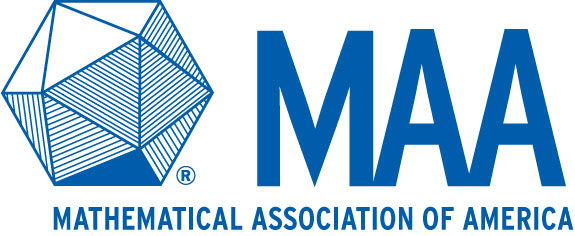Section 1.1 Event Descriptions
Subsection 1.1.1 Section NExT
Section NExT events are open to all Section NExT members and all Project NExT members in the section. Section NExT will take place on Friday. Contact Megan Buzby (mbuzby1@alaska.edu) for further information.
View the schedule
Subsection 1.1.2 Minicourses
Minicourses will be held Friday, June 25th from 3:00 pm to 5:30 pm.
Minicourse 1.1.1. Teaching Mathematics via Primary Historical Source Projects.
- David Pengelley
Oregon State University
- Janet Heine Barnett
Colorado State University Pueblo
- Dominic Klyve
Central Washington University
- Danny Otero
Xavier University
In this hands-on minicourse, participants will be introduced to a classroom-tested approach for bringing history into the mathematics classroom via guided reading projects based on primary sources. Designed to actively engage students in doing mathematics as they read and work through the writing of mathematicians such as Euler, Cauchy, and Cantor, each “Primary Source Project” (PSP) focuses on a topic in the standard undergraduate mathematics curriculum, including its mathematical context, related primary source excerpts, tasks for students, and historical background. Minicourse participants will explore this approach from both the student and instructor sides. First, in the role of students, they will work collaboratively through portions of specific PSPs. Following this opportunity to grapple with primary sources within a guided reading format, participants will discuss how to implement PSPs in the classroom. An overview of the pedagogical benefits of students learning from primary sources will be discussed, including student reactions. Finally, participants will learn about a seven-institution NSF-funded effort that is designing, testing, and researching the impact of PSPs, including an overview of their 80 existing PSPs on topics throughout the curriculum. More background via links at blogs.ursinus.edu/triumphs.
Minicourse 1.1.2. Using Modeling Activities and Projects to Motivate and Teach Content in Differential Equations and Related Courses.
- Corban Harwood
George Fox University
- Brian Winkel
SIMIODE, Inc.
This minicourse offers participants active experience in using several published Modeling Scenarios from the double-blind, peer reviewed materials in the resource collection found at the SIMIODE Community of Practice www.simiode.org. Time will be devoted to actively participate (both as students and through practice teaching) in guided activities, reflection on use in participants’ home setting, and implementation best practices. We offer this minicourse in support of colleagues who wish to experience modeling activities which can then be used in teaching their differential equations and other related courses (such as calculus, linear algebra, numerical analysis, and non-calculus based modeling/quantitative analysis courses). The leadership team of accomplished authors and teachers will demonstrate how one could effectively use a modeling approach in a differential equations course through the classroom simulation the minicourse will offer. In the process of doing the specific modeling activities during the minicourse we will share with participants information and insight into the many resources of the SIMIODE community. Through minicourse participation, colleagues will gain confidence in their ability to bring the modeling experience into their own classroom, teach from a model-driven perspective, and expand their network of like-minded colleagues.
Subsection 1.1.3 Invited Lectures
- Michael Dorff
-
Professor of Mathematics at Brigham Young University, and past president of the MAA
Michael Dorff: How mathematics is making Hollywood movies better
- Matthew Richey
-
Professor of Mathematics, Statistics, and Computer Science and Paul and Mildred Hardy Distinguished Professor of Science at St. Olaf College
Matthew Richey: Take what you have gathered from coincidence: Understanding—and Using — Randomness
- Christopher Wrather
-
Ph.D. Statistics and Operations Research, Executive Vice President SavvyAviation
Christopher Wrather: How to Freak Out your Clients with Machine Learning
Subsection 1.1.4 Contributed Talks
Contributed talks will be held Saturday.
Subsection 1.1.5 Fostering undergraduate capstone experiences
- Julie Eaton
UW Tacoma, Organizer
- Courtney Thatcher
University of Puget Sound, Panelist
- Dylan Helliwell
Seattle University, Panelist
- Jessica K. Sklar
Pacific Luthern University, Panelist
- Joseph Eason
University of Montana Western, Panelist
- Katharine Shultis
Gonzaga University, Panelist
- Yajun An
University of Washington Tacoma, Panelist
- Zaher Kmail
University of Washington Tacoma, Panelist
Offering a capstone project experience for undergraduate majors is considered a high-impact practice Association of American Colleges & Universities and the MAA’s Committee on the Undergraduate Program in Mathematics (MAA’s CUPM Guide, 2015, Recommendation 8). Many colleges and universities in the region have different models for engaging students in capstone experiences. In this discussion, panelists share a variety of capstone models, their best practices, lessons learned, tips and tricks for managing group dynamics, how to get students up to speed, and how to foster student agency.
